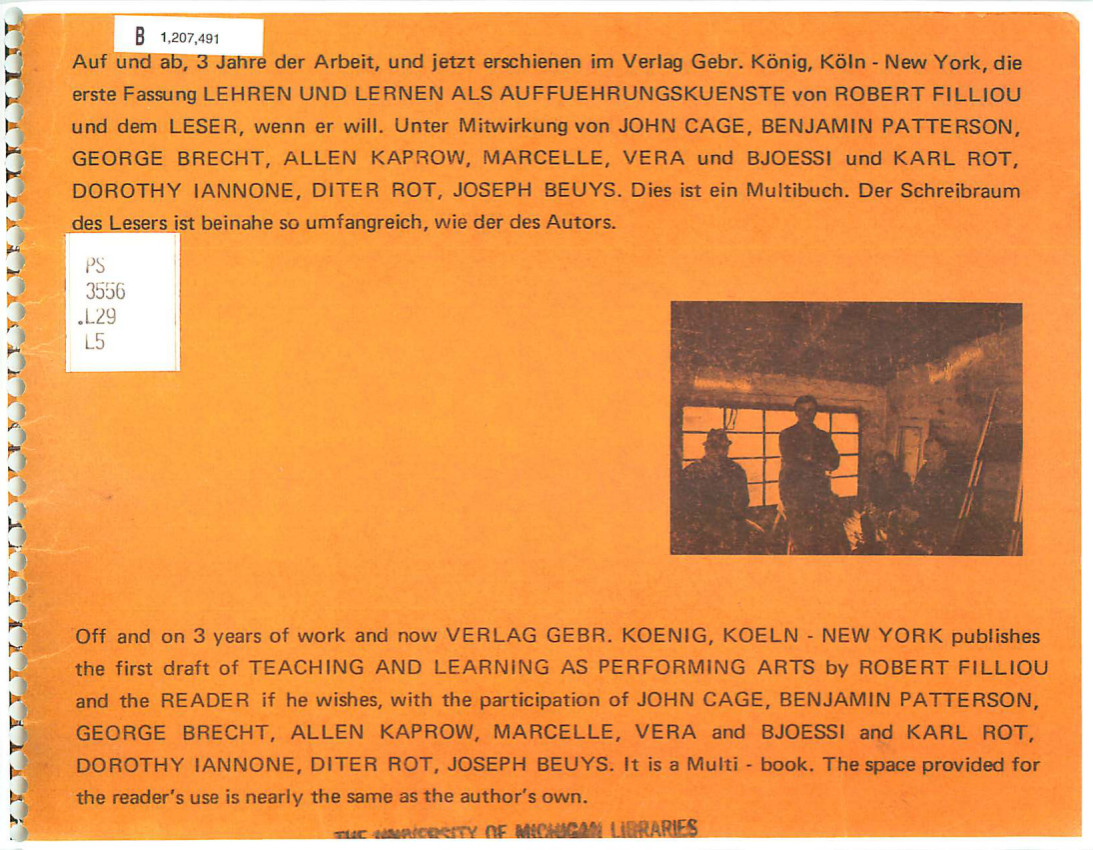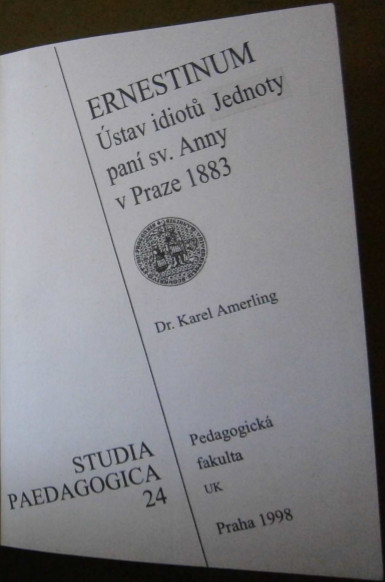Department of Eagles (eds.): Pedagogies of Disaster (2013) [English/Albanian]
Filed under book | Tags: · education, humanities, market, pedagogy, philosophy

We live in an era where the university system is undergoing great changes owing to developments in financing policies and research priorities, as well as changes in the society in which this system is embedded. This change toward a more market-oriented university, which also has immediate effects in academic peripheries such as the Balkans, the Middle East, or South-East Asia, is of great influence for the pedagogical practice of “less profitable” academic areas such as the Humanities: philosophy, languages, sociology, anthropology, history.
Because of the absence of a historically grounded establishment of the Humanities, academic peripheries, usually accompanied by a weak civil society infrastructure, seem to offer the most fertile ground for rethinking the Humanities, their pedagogical practice, and their politics, as well as the greatest threats, such as the ongoing capitalization of research, and profitability as the norm of educational achievement. The sprawling presence of for-profit universities and in academic peripheries such as Albania and Kosovo is indicative of this problematic, as are consistent underfunding of universities and the relentless budget cuts in American and English, and to a lesser extent European, universities. Motivations for this ongoing attack on the university are often driven by a political system or a politics with an aggressive stance to critical thought.
At the same time, such an absence of historical grounding may inspire a rejuvenation and reinvigoration of research in the Humanities, such as may be seen in academic centers around Asia, as many young scholars are attracted to an educational environment which is not yet completely petrified in bureaucratic procedures. In this case, a different set of questions appear concerning the place of the scholar in societies with semi-democratic or even authoritarian rule. For civil society to flourish, an educational system that reflects and interrogates the values and concepts that underlie a healthy social fabric are of crucial importance.
This volume comprises papers culled from continent. journal’s Pedagogies of Disaster conference held in Tirana, Albania, hosted by The Department of Eagles (Departamenti i Shqiponjave) in June 2013, and organized to address the fate of relation and the future of pedagogical practice in the University, and especially as it concerns the humanities. The papers gathered here seek to address the infrastructural or interpersonal changes in the modes of production as it relates to current academia, examining the elements and spaces of the rifts opening up in the polis of the University—its students, professors and administrators. The volume further addresses the pedagogical horizon at a critical limit, asking: for whom or for what are we teaching and from whom or from what are we learning?
Edited by Vincent W.J. van Gerven Oei, Adam Staley Groves, and Nico Jenkins (for The Department of Eagles, Tirana, Albania)
Translations by Jonida Gashi
Publisher Punctum Books, New York, October 2013
Brooklyn, NY: punctum books, 2013.
Creative Commons Attribution-NonCommercial-NoDerivs 3.0 Unported License
552 pages
ISBN 0615898718, 9780615898711
Robert Filliou, et al.: Teaching and Learning as Performing Arts / Lehren und Lernen als Auffuehrungskuenste (1970–) [EN/DE, FR]
Filed under artist publishing | Tags: · art, art education, education, fluxus, pedagogy, performance art

“Off and on 3 years of work and now VERLAG GEBR. KOENIG, KOELN – NEW YORK publishes the first draft of TEACHING AND LEARNING AS PERFORMING ARTS by ROBERT FILLIOU and the READER if he wishes, with the participation of JOHN CAGE, BENJAMIN PATTERSON, GEORGE BRECHT, ALLEN KAPROW, MARCELLE, VERA and BJOESSI and KARL ROT, DOROTHY IANNONE, DITER ROT, JOSEPH BEUYS. It is a Multi – book. The space provided for the reader’s use is nearly the same as the author’s own” (from cover)
Publisher Verlag Gebr. König, Cologne/New York, 1970
Editor Kasper König
236 pages
via Charles Turner
Commentary: Hannah Higgins in Fluxus Experience (pp 188–189, 195–207).
Reprint (Occassional Papers, 2014, added 2015-8-18)
Teaching and Learning as Performing Arts / Lehren und Lernen als Auffuehrungskuenste (English/German, 1970, no OCR)
Enseigner et apprendre, arts vivants (French, 1998, 34 MB, added on 2017-6-20)
Karl Amerling: Die Idiotenanstalt des Sct. Anna-Frauen-Vereins in Prag vom Jahre 1871-1883 (1883/1998) [German/Czech]
Filed under book | Tags: · 1870s, 1880s, biology, pedagogy, psychiatry

“Ernestinum, jinak Ústav idiotů Jednoty paní sv. Anny v Praze, byl ústav pro choromyslné, který založil Karel Slavoj Amerling 17. června 1871 v Praze. Sídlil nejprve v Kateřinské ulici na Novém Městě Pražském, už 1. listopadu téhož roku se ale přestěhoval do svého nového útočiště, Šternberského paláce na pražských Hradčanech (dnes jedna z poboček Národní galerie).
Amerling o chodu ústavu napsal (německy, protože nevěřil v odpovídající ohlas v češtině) práci Die Idiotenanstalt des Sct. Anna-Frauen-Vereines in Prag nach ihrem zwölfjährigen Bestande vom J. 1871-1883, do češtiny byla přeložena až roku 1997 Janou Kepartovou. Jde o neobyčejně náročný text, neboť Amerling používá mnoho vlastních neologismů, do nichž promítá své rozsáhlé vzdělání – např. jeho vlastní metody diasofie (průvěda, něm. Orientierungslehre) a mathese; dále pojmy jako dioikete, edentát, archonom, exilast, chrémat (výrobní pud), makropelmus (jedinec s nezvykle širokýma nohama a podobnýma rukama), psychozot, proterot (‘upovídaný, zbrklý blázen’), hyperkinet (‘němý, neklidný běžec’) aj.
Podle Amerlinga se lidský život dělí do dvanácti fází po sedmi letech, přičemž ‘všechny roky po ukončení 84. roku života jsou mimořádné a taktéž všechny roky před 84. rokem života, neboť životní řád obnáší přesně dvanáctkrát sedm let.’
Během existence ústavu se v něm vystřídalo asi 166 chovanců (mužů i žen), ročně od šesti (v Kateřinské ulici) do šedesáti roku 1883.” (from Wikipedia)
German edition
Self-published, Prague, 1883
152 pages
via Eťa Kazmuková
Czech edition: Ernestinum: Ústav idiotů Jednoty paní sv. Anny v Praze: stav po 12 letech trvání (1871–1883)
Translated by Jana Kepartová
Publisher Pedagogická fakulta Univerzity Karlovy, Praha, 1998
Studia Paedagogica 24
ISBN 8086039447
132 pages
wikipedia (CZ)
PDF (German, no OCR)
PDF (Czech, no OCR)

